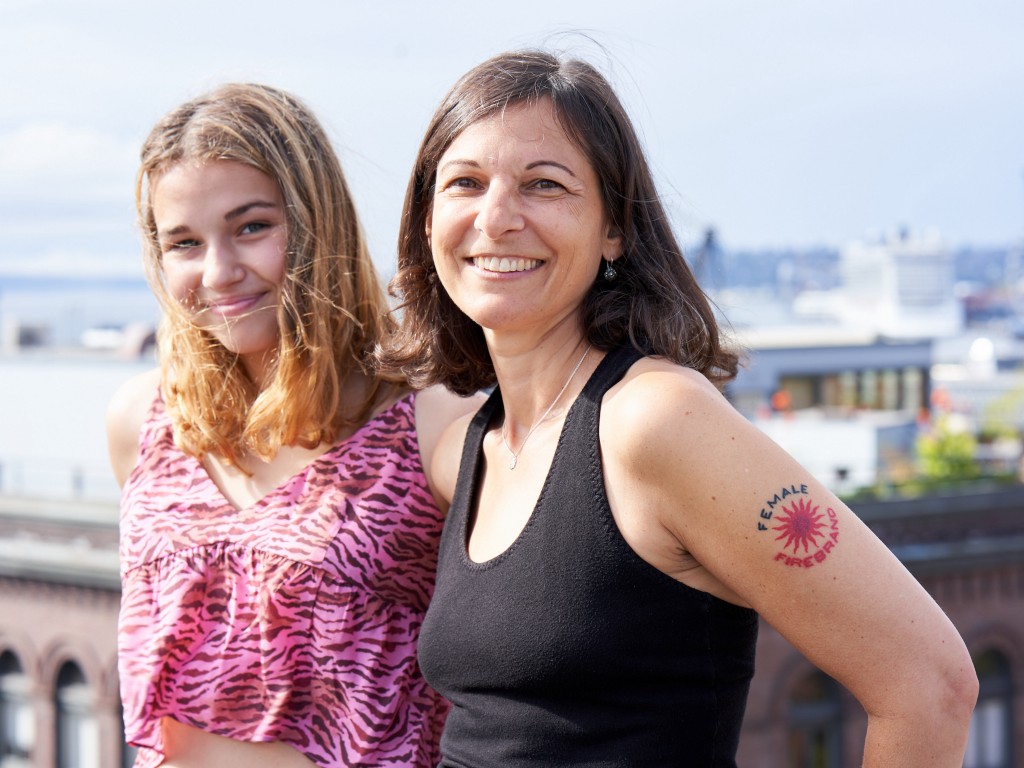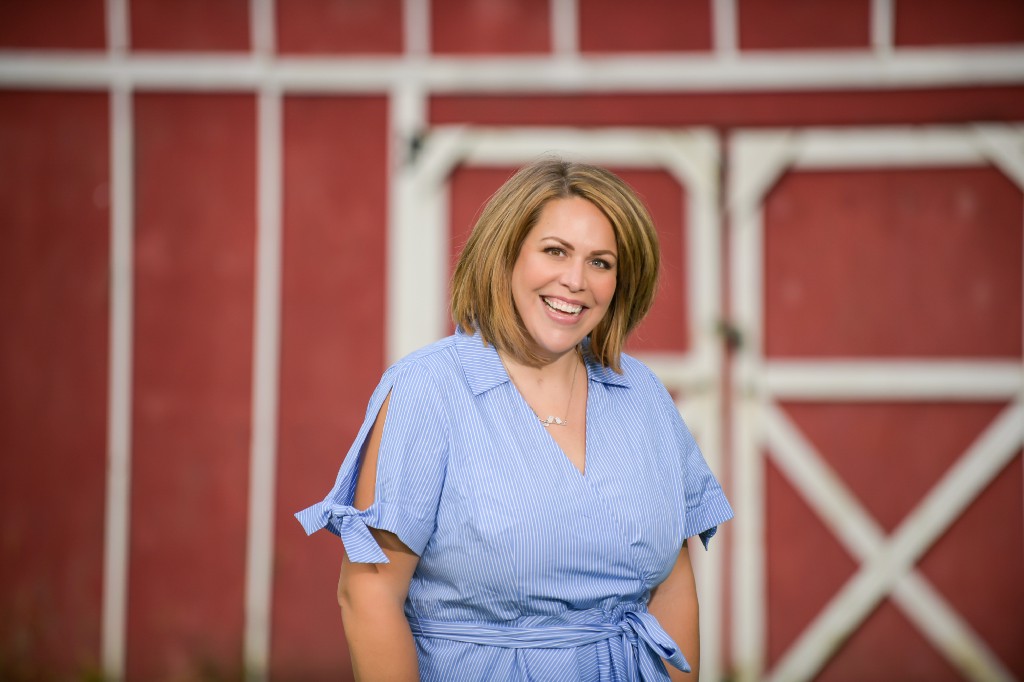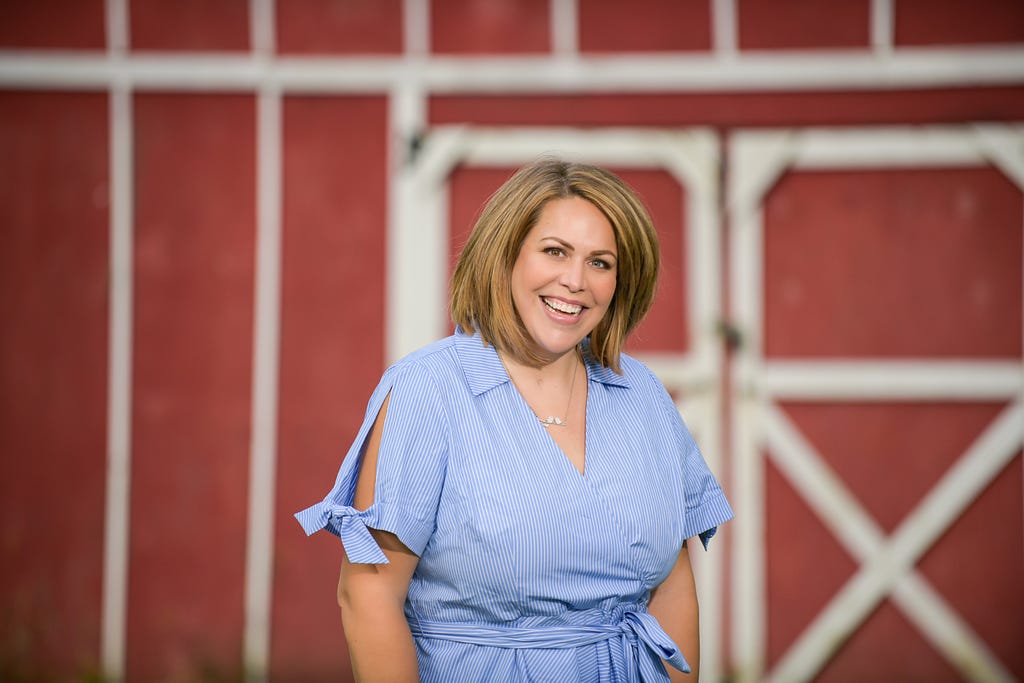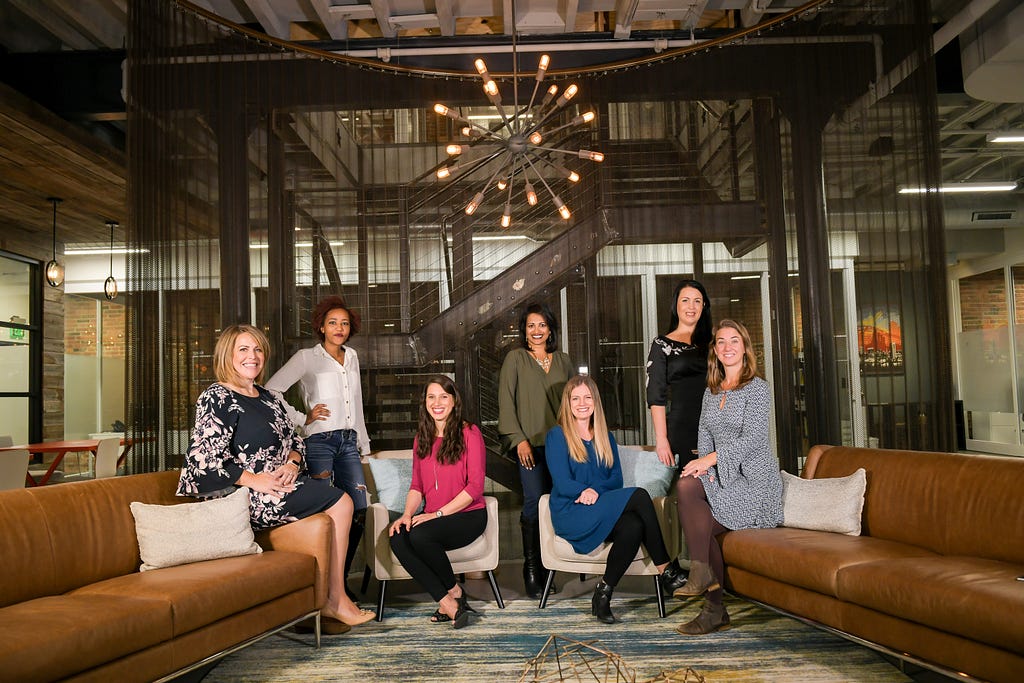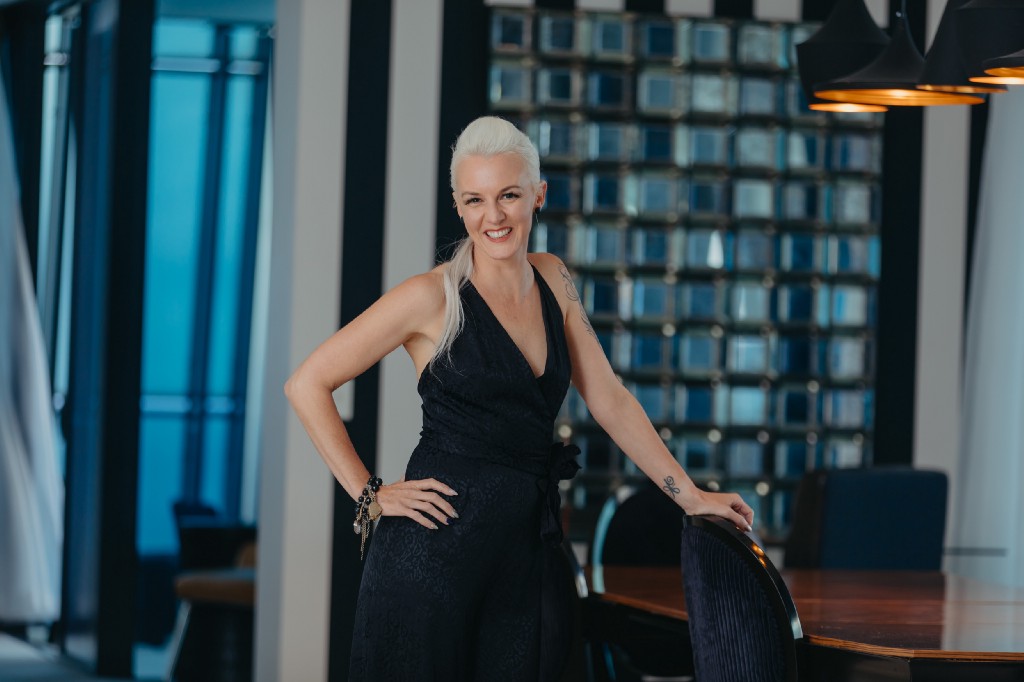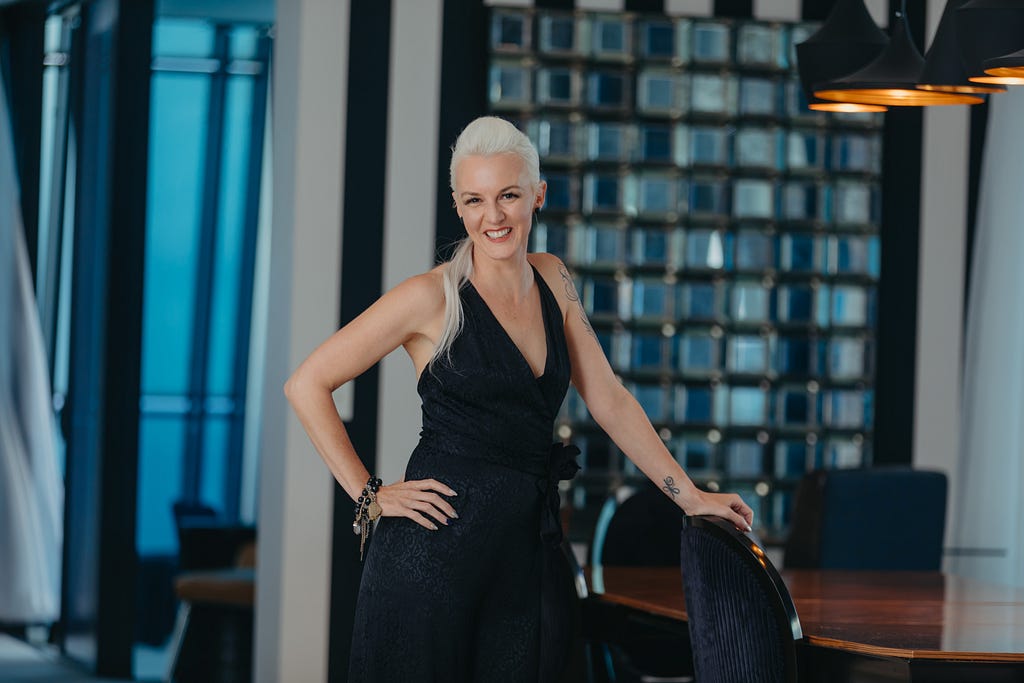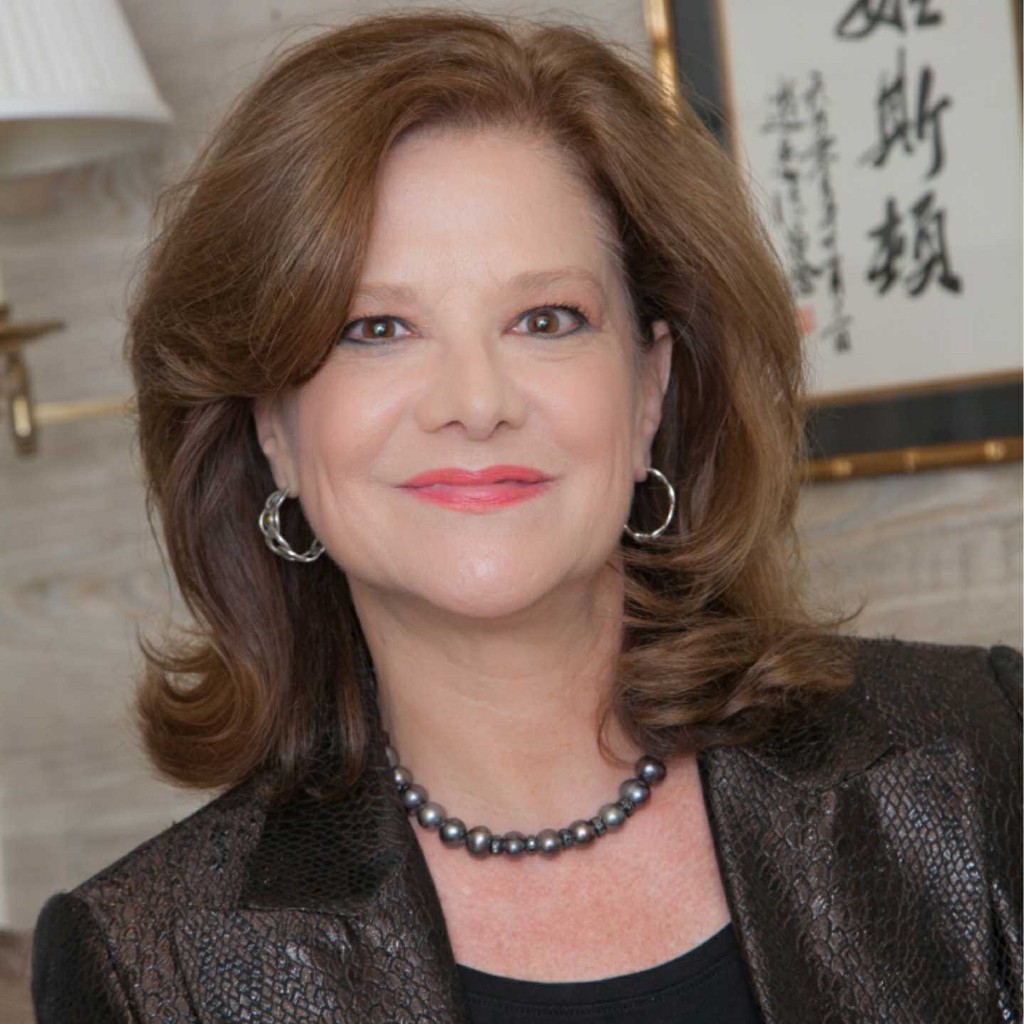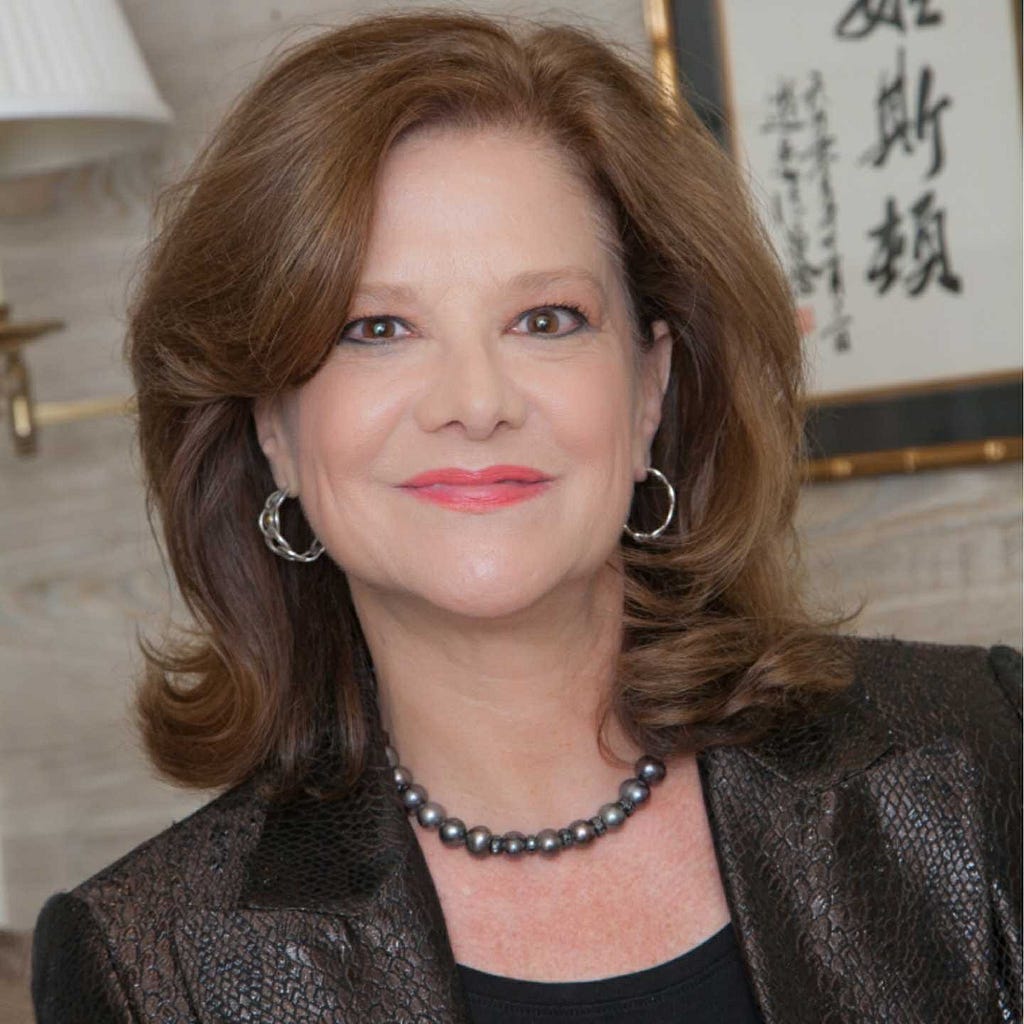“How I Was Able To Thrive Despite First Experiencing Impostor Syndrome” With of Reverb CEO Mikaela Kiner
An Interview With Candice Georgiadis
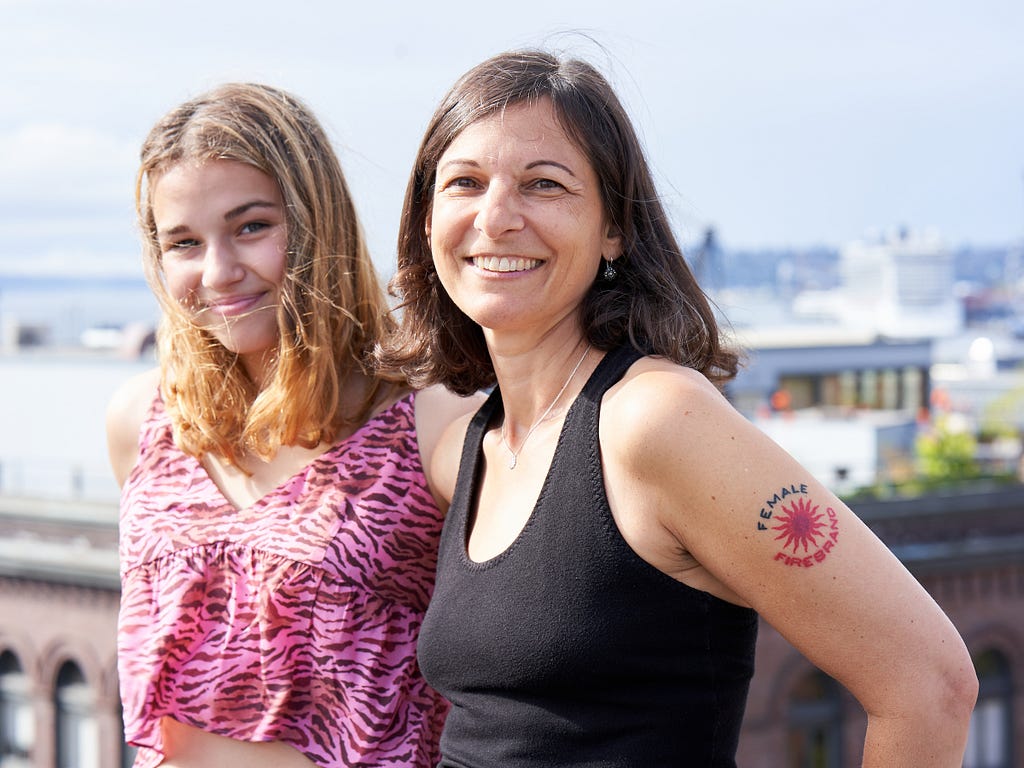
Create an Impostor Box. When you experience self-doubt, write your feelings down, tuck them away, and get on with your day. Revisit them when you’re ready, on your terms.
As a part of our series about how very accomplished leaders were able to succeed despite experiencing impostor Syndrome, I had the pleasure of interviewing Mikaela Kiner. Mikaela is the Founder and CEO of Reverb — a leading provider of HR consulting, leadership development, and executive coaching for Seattle area startups. She’s also the author of Female Firebrands: Stories and Techniques to Ignite Change, Take Control, and Succeed in the Workplace. Mikaela is married to Henry, a musician, artist, and teacher. Their two teenagers are good at challenging the status quo and are a constant source of learning and laughter.
Thank you so much for joining us, Mikaela! Our readers would love to “get to know you” a bit better. Can you tell us a bit about your ‘backstory’?
As the daughter of two employment attorneys (the people who sue companies for workplace harassment and discrimination), you can imagine the kind of stories I heard as a kid at the dinner table. Even then I thought there must be a better way. In college I studied liberal arts and struggled to find my calling. I interned with various nonprofits, and spent one summer selling concessions at a freakshow in Coney Island. When we worked late, the bearded lady would drive me home.
In my senior year I fell into Human Resources with an upscale coffee chain where I’d started as a barista. After hiring and training teams to open thirty stores across three states I was intrigued by what HR could do and eventually left to pursue a Master’s in HR Management. I spent the next fifteen years working with Microsoft, Starbucks and Amazon, including a three year assignment in Hyderabad. My family still misses the people, food, and culture of South India.
Wanting more control over my work and time with my family, I struck out on my own in 2015 and founded Reverb. Being a founder and entrepreneur has been one of the most rewarding and least stressful times of my life. This is one of the best kept secrets about entrepreneurship.
Can you share with us the most interesting story from your career? Can you tell us what lessons or ‘take aways’ you learned from that?
I had a boss who was a real yeller, and just did not know how to work with senior women. After being patient, trying to work with him and asking him to be civil, I decided for my own peace of mind I just couldn’t sit through one more meeting with him yelling at me.
I created a plan for myself so I would be prepared, and not have to think on my feet. Next time he started to yell, I would stand up and suggest that we talk when he was calm, then collect my things and leave his office.
I didn’t have to wait long. The next time he raised his voice I stood up, ready to put my plan into action. Instead, something remarkable happened. He visibly collected himself and lowered his voice. I did not have to leave, or even threaten to leave. I sat down and we continued to have a relatively productive conversation. That scenario repeated itself many times before I decided to leave the company.
What I learned in that moment was:
- Standing up for myself increased my own confidence and feelings of self-worth
- I could do it! I’m pretty easy going so it was good to know I could (literally) stand up for myself
- Changing my behavior changed his; by doing something different I disrupted his pattern
- Planning ahead enabled me to act vs. freeze in the moment
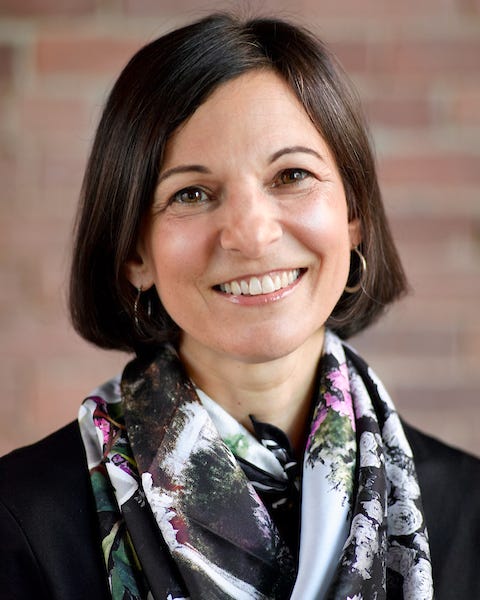
What do you think makes your company stand out? Can you share a story?
Our core values include Kindness and Flexibility. Our consulting model has attracted many moms who want to balance interesting, challenging work with caring for their families. Whether they consult with us full or part time, we work with them to achieve the balance they’re looking for. That may look like:
- Working a reduced schedule to care for ill or aging parents
- Taking a month off between assignments to unwind
- Enjoying summers off with kids, without checking email
Regardless of family status, everyone appreciates flexibility. One staff member spent the winter working from Bali. Because — why not?
These values come through in how the team treats our clients, and serve as a constant reminder that we value the quality and impact of work over facetime.
None of us are able to achieve success without some help along the way. Is there a particular person who you are grateful towards who helped get you to where you are? Can you share a story?
Countless people have helped me, and I am grateful for the generosity I experience every day. One of my biggest champions is Shannon Anderson, the head of talent at Madrona Venture Group. Since the day she started at Madrona, Shannon has helped me and Reverb in countless ways.
- Speaking at our events, including a recent keynote called Culture is the New Currency
- Endorsing us as her go-to HR firm
- Sponsoring Reverb’s management and leadership development workshops
- Finding ways to proactively advocate for me in conversations, through introductions, and on social media
- Consistently being kind and generous, while expecting nothing in return
Because of Shannon, we ’re at the table with some of Seattle’s leading startups. I like to think the quality of our work was equally good before Shannon arrived on the scene, but it was her advocacy that kicked off this virtuous cycle by getting our name out there and increasing our credibility. She even interviewed me for Madrona’s new podcast Founded and Funded (episode coming soon!).
Ok thank you for all that. Now let’s shift to the main focus of this interview. We would like to explore and flesh out the experience of Impostor Syndrome. How would you define Impostor Syndrome? What do people with impostor Syndrome feel?
Impostor syndrome is the sense that you’re not good enough, or you don’t deserve something, regardless of your skills, abilities, and qualifications. You may think you need another degree or a bigger title before you truly deserve what you’ve (already) accomplished.
You may believe that even your peers and colleagues won’t accept or recognize you until you have another degree, certificate, or more skills under your belt. Often the more qualified the person, the bigger her role, the more she may suffer. Even former First Lady Michelle Obama has acknowledged that she experiences impostor syndrome.
Impostor syndrome can lead to feelings of insecurity, shame, and a sense that you don’t belong. You feel like a fraud who’s about to be discovered, as if you got where you are by sheer luck. While men do experience impostor syndrome, it’s worse for white women and worse yet for women of color, since society constantly reinforces their feelings of self-doubt.
What are the downsides of Impostor Syndrome? How can it limit people?
Impostor syndrome by its very nature is self-limiting. Here are just a few examples of how it can hold you back:
- Striving for perfectionism vs. accepting that you are good enough as you are
- Being overly self critical; needlessly experiencing self-doubt
- Feeling you have nothing to offer those around you
- Not applying for a job or promotion because you assume you aren’t qualified
How can the experience of Impostor Syndrome impact how one treats others?
Competition vs. Collaboration: People who feel they aren’t good enough will see fewer opportunities to succeed. Rather than coming from a place of abundance, this will create a scarcity mindset. The result? They may choose not to help or support their friends and colleagues, worrying that more for others means less for them. They can see life’s rewards as a fixed sum.
Putting others on a pedestal: If you feel “less than,” it’s likely that you believe those around you who are in positions of power have it all. Doubting your own credentials widens the perceived gap between you and people who in fact have similar skills and qualifications. This may make people with impostor syndrome afraid to talk to others, form relationships, or ask for favors simply because they don’t believe they are worth the time.
We would love to hear your story about your experience with Impostor Syndrome. Would you be able to share that with us?
In the summer of 2018 while I was working on my book, a journalist from The Wall Street Journal asked to interview me for her Work and Family column. When I looked at who else she had featured, I saw people with big titles and important roles, and I wondered, “Why would she want to hear my story?”
I saw myself as less accomplished and less relevant. I had to remind myself that I’ve held senior roles in successful, global organizations and my experiences count. Not only did I enjoy our conversation, we spoke again many months later on a different topic. In the end I was quoted twice and met a wonderful woman who I now consider an ally.
Did you ever shake the feeling off? If yes, what have you done to mitigate it or eliminate it?
Early in my career before I ever heard of impostor syndrome, I lived with it all the time. I would walk into a meeting at work and wonder “Do they like me? Am I smart enough to be here?” It took me several years before I walked into a room and asked myself “Do I like them? Are these people I respect and admire?”
I don’t know that it’s possible to be entirely rid of impostor syndrome but I do manage it better today. What has helped me is learning to recognize it so I can deal with my feelings rationally and talk myself down.
Last year my colleague Elizabeth Bastoni shared some advice that really helped. She said “Don’t say no to yourself, let other people do that for you.” When I start talking myself out of asking for an opportunity or favor because I don’t think I’m worth it, her words are a good reminder to put myself out there and let others decide. More often than not, their answer is yes.
In your opinion, what are 5 steps that someone who is experiencing Impostor Syndrome can take to move forward despite feeling like an “Impostor”? Please share a story or an example for each.
- Name It. You can’t prevent thoughts and feelings of impostor syndrome but when you name them, you can overcome them. Label impostor syndrome for what it is.
- Choose a Mantra. Counter those feelings with a mantra like Michelle Obama’s “I am good enough.”
- Gather Data. List the facts and data about your qualifications and achievements to remind yourself that you are indeed accomplished and deserving.
- Create an impostor Box. When you experience self-doubt, write your feelings down, tuck them away, and get on with your day. Revisit them when you’re ready, on your terms.
- Find a Friend. There’s nothing like confiding in someone you trust who can talk you off a ledge and help you see yourself for the talented, capable person you are
You are a person of great influence. If you could inspire a movement that would bring the most amount of good to the greatest amount of people, what would that be? You never know what your idea can trigger. 🙂
I would really love to see the democratization of coaching, where companies embrace coaching as a benefit for all employees. The first couple times I worked with a coach were life changing. I gained perspective, increased my self-compassion, and felt more in control of my career choices. It was all the result of a single coaching conversation.
We are blessed that some very prominent leaders read this column. Is there a person in the world, or in the US, with whom you would love to have a private breakfast or lunch, and why? He or she might just see this, especially if we tag them 🙂
Without question, Adam Grant. Right now I’m reading Give and Take. His well researched ideas are addictive, relevant, and easy to apply. I’m embracing both The 5 Minute Favor and Being a Giver Without Becoming a Doormat. I would be thrilled if The 5 Minute Favor became our next revolution.
How can our readers follow you on social media?
https://www.linkedin.com/in/mikaelakiner/
https://twitter.com/MikaelaKiner
This was very inspiring. Thank you so much for joining us!
“How I Was Able To Thrive Despite First Experiencing Impostor Syndrome” With of Reverb CEO… was originally published in Authority Magazine on Medium, where people are continuing the conversation by highlighting and responding to this story.

